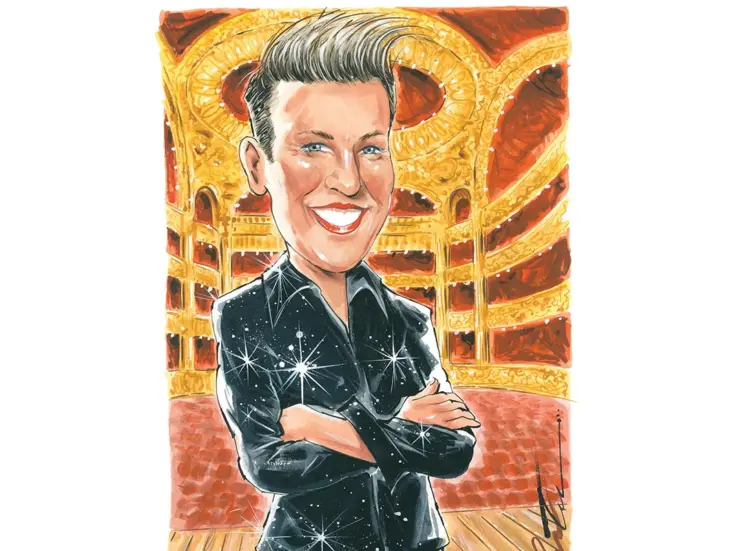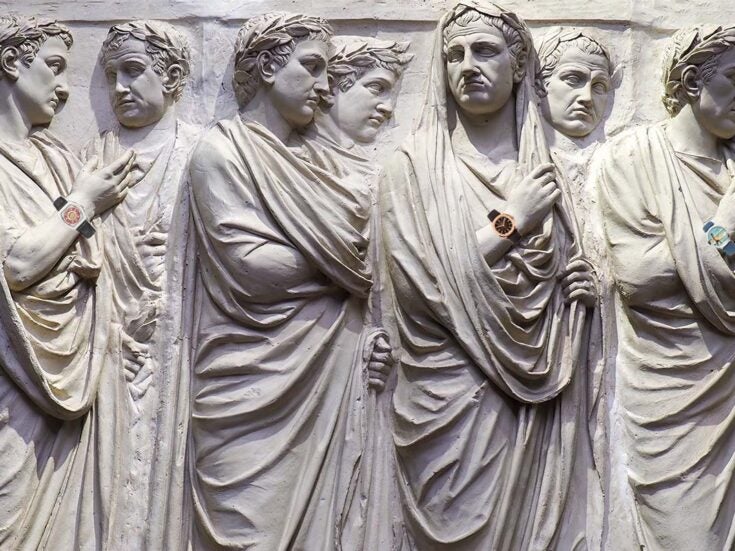
How Manhattan Defined American Sophistication – from the Algonquin Round Table to Truman Capote’s Ball
Ethan Mordden
St Martin’s Press, 336pp
The tyranny of New York’s Four Hundred, the term coined by Mrs Astor’s ‘fervent toady’ Ward McAllister ‘to delimit the socially reliable’ for the purpose of hosting balls in the post-Civil War period, did not hold sway for very long. In this sprightly, sometimes bitchy social and cultural history of Manhattan in the early and middle parts of the 20th century, Ethan Mordden, an expert on the history of the Broadway musical, describes how ‘the notion of who was elite and how elitism worked underwent evolution’, so that by the time we reach November 1966, ‘half the country is talking of a masked ball given by a gay elf for the 450 most fascinating people he knows’.
During the period between Mrs Astor and Capote, Mordden argues, ‘certain leaders and opinion-makers in the New York arts and letters scene seized control of the national culture on the elite level’, while the nation’s heartland resented ‘New Yorkism’.
First came the rule of the Algonquin Round Table, a group of influential writers. Lasting from 1920 to 1932, this was a self-regarding, though meritocratic, clique. Three of its members wrote theatre criticism, which was significant because Broadway theatre was another agent of social change.
In 1925, in one of the earliest editions of The New Yorker, a debutante named Ellin McKay wrote an article entitled ‘Why We Go To Cabarets’. ‘It was a new sort of community, Society without ancestors,’ explains Mordden. ‘Suddenly, notable people were coming from what society thought of as “anywhere”, and the place to meet them was cabarets.’ In this context, it is strange to find that Mordden makes no mention of Lucius Beebe, coiner of the term ‘café society’ in his column for the New York Herald Tribune.
Mordden’s approach is idiosyncratic. He darts from one influential personality to another, for example examining ‘two men from anywhere who made Society marriages’: Broadway songwriter Irving Berlin, who married Ellin McKay, and record-breaking aviator Charles Lindbergh, who married Ann Morrow. Mordden has an excellent chapter on the black performer Ethel Waters, who started out performing in black cabarets for white folks, but made the transition to serious theatre, as well as a chapter contrasting the world-class conductor Arturo Toscanini with the parochial Broadway impresario Billy Rose.
During the Forties it was the Broadway columnist Walter Winchell (‘a monster of puffs and revenges, a busybody treated as an emperor’) who redefined the elite. ‘It was The Column that killed Society, for it solemnised the transition from an aristocracy of families and manners to one of notoriety and talent’, while Sherman Billingsley’s Stork Club became ‘essential to the culture’s romance with “Broadway”’. Occupying a much smaller space than we might imagine, the Stork Club’s crowding ‘was part of its brand, its equivalent of the Four Hundred fillings Mrs Astor’s ballroom’.
Broadway was also the means by which a Southern boy named Truman Capote made the transition to New York sophisticate, through the musical House of Flowers, based on one of his short stories. The guest list of Capote’s Black and White masked ball in 1966 illustrated ‘how completely New Yorkism had replaced Society as the elite class. Here were wastrels and achievers, the social and the unaligned, the grandee and the upstart.’
Mordden’s book bristles with opinions and witty asides as well as information, drawing on his profound knowledge of Broadway lore. Of course, since the Sixties many more factors have influenced the American national culture than the ‘New Yorkism’ identified by Mordden. Any account dating from the Eighties would have to consider how Wall Street business figures projected themselves into the national consciousness, as well as the impact of California-based Apple and Google, but in concluding with Capote’s ball Mordden chooses an appropriate moment to leave the stage.
Buy The Guest List from Amazon








